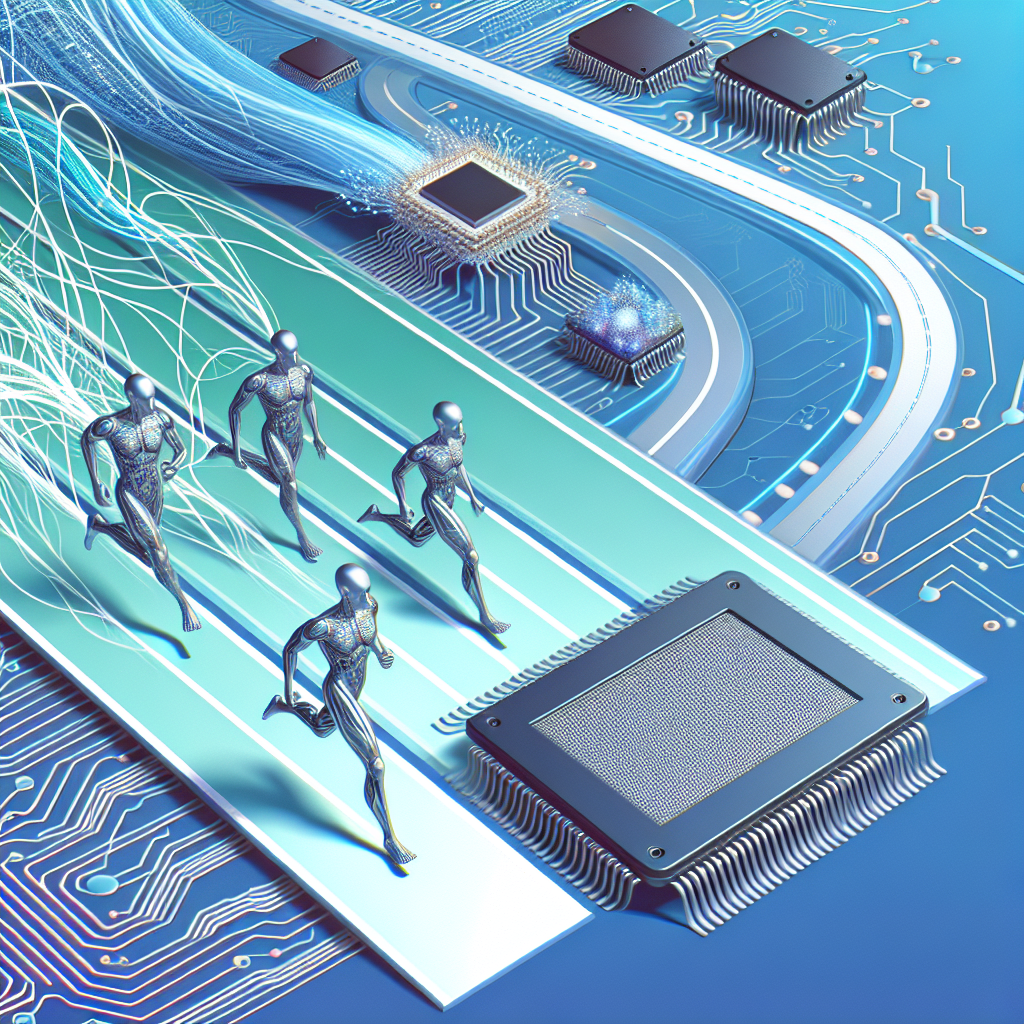The Race for AGI: Who Will Lead the Way?
Artificial General Intelligence (AGI) is the next frontier in artificial intelligence research. AGI refers to a machine intelligence that can understand and learn any intellectual task that a human being can. While current AI technologies are highly specialized and focused on specific tasks, AGI would be able to perform a wide range of tasks with the same level of proficiency as a human.
The race for AGI is heating up as tech giants, research institutions, and startups are investing heavily in developing the technology. The potential benefits of AGI are immense, from revolutionizing healthcare and education to transforming industries such as finance and transportation. However, there are also significant risks associated with AGI, including concerns about job displacement, ethical implications, and the potential for AGI to surpass human intelligence.
In this article, we will explore the current state of the race for AGI, the key players in the field, and the challenges and opportunities that lie ahead.
Key Players in the Race for AGI
Several major players are leading the charge in the race for AGI, each with their own unique approach and expertise. Some of the key players include:
1. Google: Google has been at the forefront of AI research for many years and is investing heavily in developing AGI. The company’s research division, Google Brain, is focused on advancing the field of deep learning and neural networks, which are key technologies for achieving AGI.
2. OpenAI: Founded by Elon Musk and others in 2015, OpenAI is a nonprofit research organization dedicated to advancing artificial intelligence in a safe and beneficial way. OpenAI is known for its cutting-edge research in reinforcement learning, a key area of AI that is essential for achieving AGI.
3. DeepMind: Acquired by Google in 2014, DeepMind is a leading AI research lab based in London. The company is known for developing AlphaGo, the AI system that defeated the world champion Go player in 2016. DeepMind is also working on developing AGI through its research in areas such as deep reinforcement learning and unsupervised learning.
4. IBM: IBM has a long history of AI research and is investing in developing AGI through its research division, IBM Research. The company’s Watson AI platform is already being used in a variety of applications, from healthcare to finance, and IBM is working on advancing its capabilities to achieve AGI.
5. Microsoft: Microsoft is another major player in the race for AGI, with its research division, Microsoft Research, focused on advancing the field of artificial intelligence. The company is also investing in developing AGI through its AI research lab, Microsoft AI & Research.
Challenges and Opportunities in the Race for AGI
While the potential benefits of AGI are immense, there are also significant challenges that must be overcome in order to achieve it. Some of the key challenges include:
1. Data: AGI requires vast amounts of data in order to learn and understand the world. Collecting and processing this data is a significant challenge, especially in areas where data is scarce or difficult to obtain.
2. Computing Power: Achieving AGI requires powerful computing resources, including high-performance GPUs and specialized hardware. Developing the necessary hardware infrastructure is a major challenge for researchers in the field.
3. Algorithms: Developing algorithms that can learn and reason in a way that is similar to human intelligence is a major challenge in achieving AGI. Researchers are working on developing new algorithms that can handle the complexity and uncertainty of the real world.
4. Ethics: There are significant ethical implications associated with developing AGI, including concerns about job displacement, privacy, and the potential for AGI to surpass human intelligence. Addressing these ethical concerns is essential in order to ensure that AGI is developed in a safe and beneficial way.
Despite these challenges, the race for AGI also presents significant opportunities for innovation and advancement. AGI has the potential to revolutionize industries and transform the way we live and work. By developing AGI, researchers have the opportunity to create intelligent systems that can assist us in solving some of the most pressing challenges facing society today.
FAQs
Q: What is the difference between AGI and narrow AI?
A: Narrow AI refers to AI systems that are designed to perform specific tasks, such as image recognition or natural language processing. AGI, on the other hand, refers to a machine intelligence that can understand and learn any intellectual task that a human can.
Q: How close are we to achieving AGI?
A: While significant progress has been made in AI research in recent years, achieving AGI is still a long way off. Researchers are working on developing the necessary algorithms, data, and computing power to achieve AGI, but there are still many challenges that must be overcome.
Q: What are the potential risks of AGI?
A: There are significant risks associated with AGI, including concerns about job displacement, ethical implications, and the potential for AGI to surpass human intelligence. Addressing these risks is essential in order to ensure that AGI is developed in a safe and beneficial way.
Q: How can I get involved in the race for AGI?
A: There are many ways to get involved in the race for AGI, from pursuing a career in AI research to supporting organizations that are working on developing AGI in a safe and beneficial way. By staying informed and engaged in the field of AI research, you can help shape the future of AGI.
In conclusion, the race for AGI is heating up as major players in the field invest heavily in developing the technology. While there are significant challenges that must be overcome in order to achieve AGI, the potential benefits are immense. By addressing these challenges and working together to develop AGI in a safe and beneficial way, researchers have the opportunity to create intelligent systems that can revolutionize industries and transform the way we live and work.

